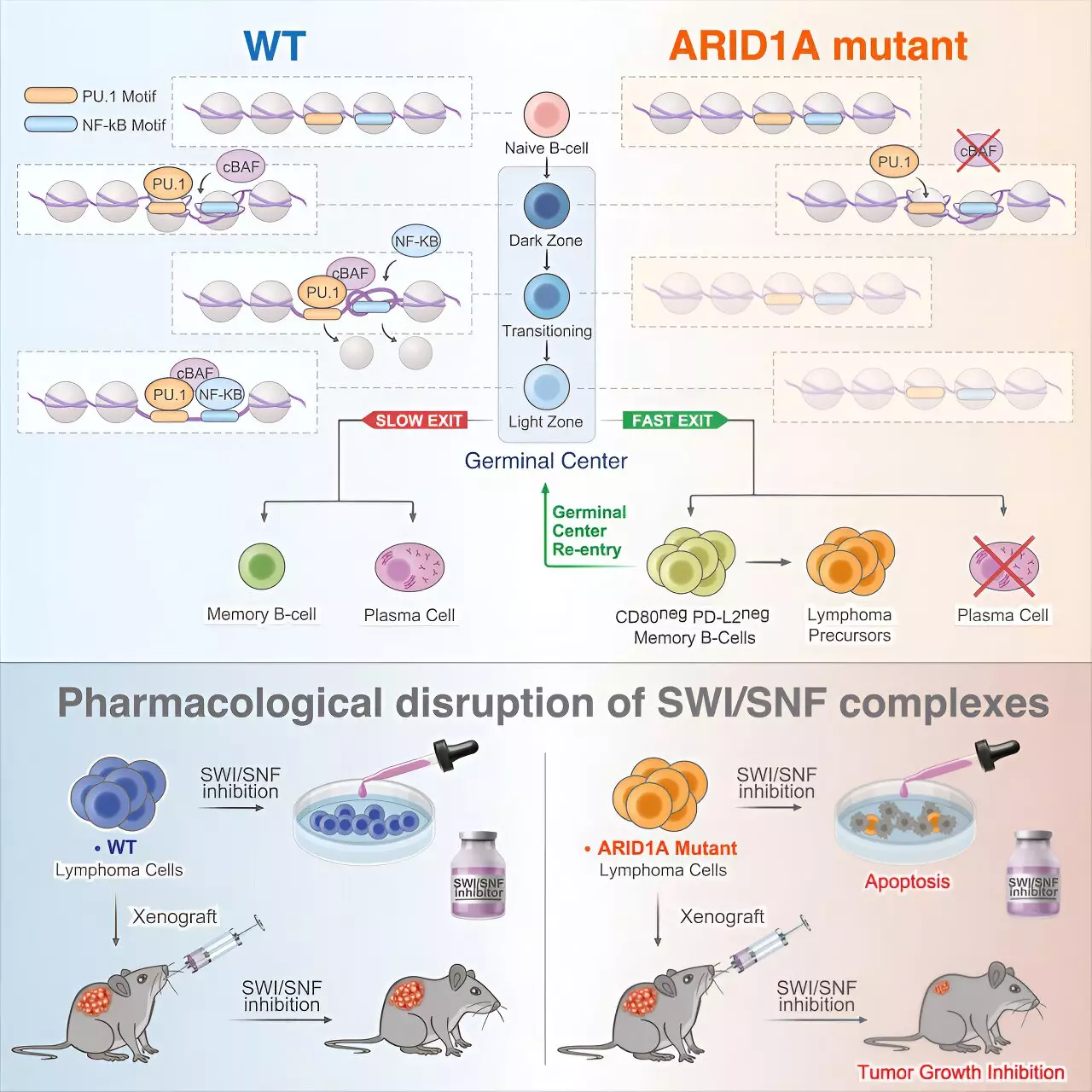Follicular lymphoma, the second most common type of lymphoma in the United States, presents as a slow-growing cancer that can sometimes progress into a more aggressive form. The reasons for this transformation have remained largely unknown, making it challenging to predict which patients are at risk of rapid progression. Therefore, there is a critical need for early intervention therapies to address this subset of patients.
Researchers at Weill Cornell Medicine have identified mutations in the ARID1A gene, which codes for a component of the BAF gene-regulating complex, as key drivers of this transformation. These mutations lead to dysregulation of the BAF complex, pushing cells towards an immature “memory B cell” state characterized by rapid cell division and high mutation rates. This abnormal state is associated with a higher risk of transformation in follicular lymphoma patients.
The study revealed that lymphomas with ARID1A mutations are particularly susceptible to BAF inhibitors, which target the compromised BAF functions in these cells. Preclinical experiments showed that these inhibitors could induce complete remission in lymphomas with ARID1A mutations, suggesting a potential for precision therapy in patients at risk of rapid progression. This approach could provide much-needed early intervention options for these patients.
The findings of this study also raise broader questions about the role of BAF mutations in cancer. With BAF-affecting mutations being reported in about 20% of human cancers, there is a possibility that BAF inhibitors could have a wider application in oncology. Understanding the common mechanisms underlying BAF mutations across different cancers could significantly advance the field of precision oncology, addressing an unmet need in cancer treatment.
Collaborative efforts between research institutions like Weill Cornell Medicine and the University of Texas MD Anderson Cancer Center are crucial in advancing our understanding of follicular lymphoma transformation. By identifying key drivers of this process and developing targeted therapies like BAF inhibitors, researchers are paving the way for personalized treatments that could improve outcomes for patients with aggressive forms of follicular lymphoma. Further clinical trials and studies are needed to validate the efficacy of these interventions and bring them to the bedside for patient care.

